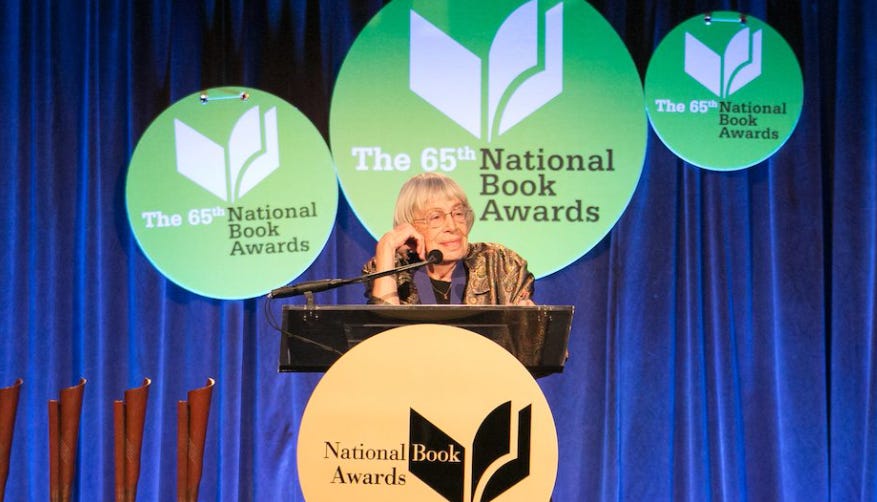When Science Fiction and Fantasy Envisions Life Beyond Capitalism
A syllabus of SFF novels that imagine different ways of living
In 2014, the legend Ursula K. Le Guin was given a Medal for Distinguished Contribution to American Letters by the National Book Foundation and delivered what I’ve heard (accurately) described as a barn burner of a speech. Perhaps the most memorable part was her call for imaginative literature that envisions other ways of living:
Hard times are coming, w…
Keep reading with a 7-day free trial
Subscribe to Counter Craft to keep reading this post and get 7 days of free access to the full post archives.




